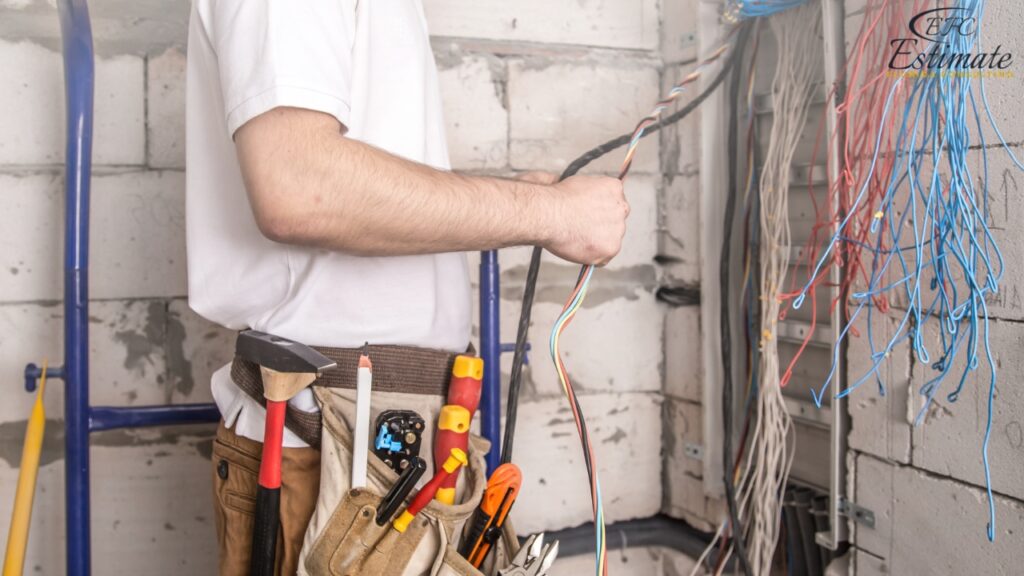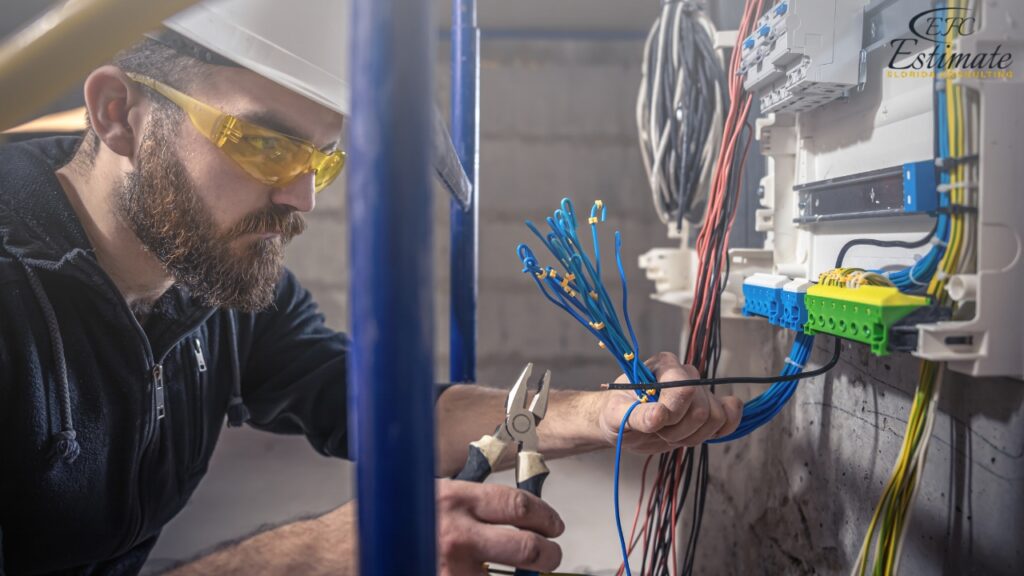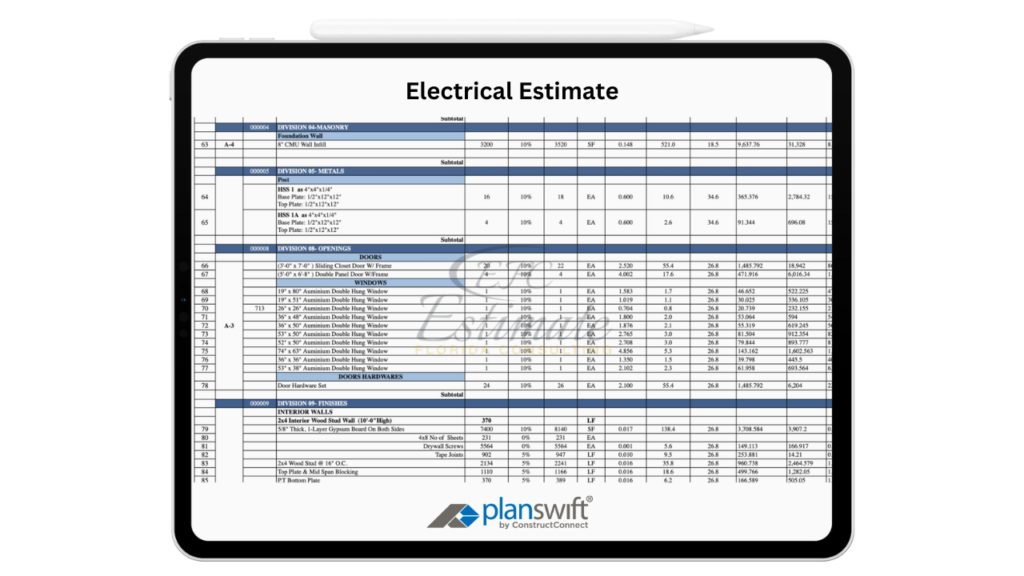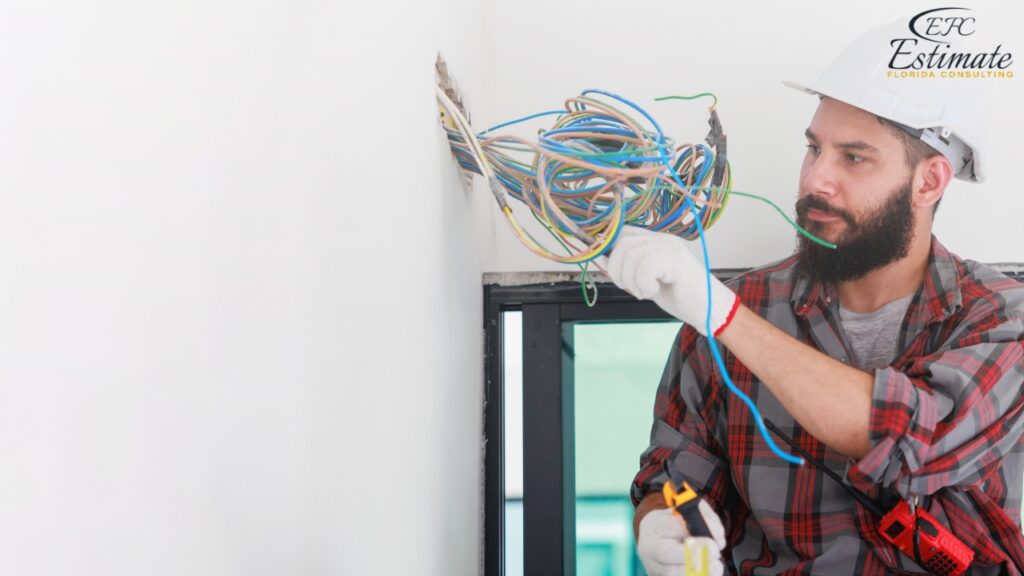How Much Does It Cost to Rewire an Old House?
Rewiring an old house is a significant but often necessary investment to ensure the safety and functionality of the electrical system. Aging wiring can pose serious risks, including fire hazards and frequent electrical issues. Understanding the cost factors involved in rewiring an old house can help homeowners plan and budget for this essential upgrade. In this blog, we will explore the various factors that contribute to the cost of rewiring an old house, providing detailed breakdowns and cost estimates to help you understand the financial commitment required for such a project. Ensuring a safe and reliable electrical system is crucial for both the comfort and value of your home.

Benefits of Rewiring an Old House
Rewiring an old house offers several benefits that extend beyond basic functionality:
- Safety: Modern wiring meets current safety standards, reducing the risk of electrical fires and other hazards. Up-to-date wiring ensures that your home’s electrical system can handle the demands of modern appliances and electronics without posing a risk of overheating or electrical fires.
- Reliability: Upgrading the electrical system can eliminate frequent outages, flickering lights, and other issues common in older homes. A reliable electrical system provides peace of mind and reduces the likelihood of inconvenient power disruptions.
- Capacity: New wiring supports modern electrical demands, allowing the use of high-power appliances and electronics without overloading the system. This is especially important in today’s technology-driven world, where households rely heavily on multiple devices and appliances.
- Property Value: An updated electrical system can increase the value of the home and make it more attractive to potential buyers. Homes with modern electrical systems are often seen as more desirable and safer investments, which can positively impact resale value.
- Insurance Savings: Some insurance companies offer discounts for homes with updated electrical systems, potentially reducing homeowners insurance premiums. Updating your wiring can lead to long-term savings on insurance costs by demonstrating that your home meets current safety standards.
Average Cost Breakdown
The cost of rewiring an old house can vary widely based on several factors, including the size of the house, the condition of the existing wiring, and local labor rates. On average, the cost to rewire an old house can range from $13,520 to $54,080 or more. Here’s a general cost breakdown:
Component | Estimated Cost (in dollars) |
Materials | $2,704 – $13,520 |
Labor | $10,816 – $40,560 |
Total Cost | $13,520 – $54,080 |
Factors Affecting the Cost of Rewiring an Old House
Several factors can influence the cost of rewiring an old house, including:
Size of the House
The size of the house is a primary factor in determining the cost of rewiring. Larger homes require more materials and labor, increasing the overall expense. For example, a small house of 1,000 square feet may cost between $13,520 and $27,040, while a larger house of 3,000 square feet could cost between $40,560 and $54,080. Accurately measuring the square footage and understanding the layout is essential for obtaining precise cost estimates. Larger homes not only require more wiring but also more time and effort to navigate through walls, ceilings, and floors, which can add to the complexity and cost of the project.
Condition of the Existing Wiring
The condition of the existing wiring can significantly impact the cost of rewiring. Homes with outdated or damaged wiring may require more extensive work, including the removal of old wiring, which can add to the overall cost. Additionally, if the existing wiring is in poor condition, it may pose safety hazards that need to be addressed before new wiring can be installed. This can involve additional inspections and repairs, further increasing the cost. Older wiring systems, such as knob-and-tube or aluminum wiring, can be particularly challenging and costly to replace due to the need for careful removal and compliance with current electrical codes.

Access and Complexity
The ease of access to existing wiring and the complexity of the house’s layout can also affect the cost. Houses with easily accessible attics, basements, and crawl spaces are generally less expensive to rewire than those with limited access or complicated layouts. Additionally, homes with plaster walls or intricate architectural details may require more time and labor to carefully remove and replace wiring without causing significant damage. The presence of built-in fixtures, tight spaces, and unique design elements can all add to the labor intensity and cost of the project. Proper planning and a thorough assessment by a professional electrician can help anticipate these challenges.
Local Labor Rates
Labor costs can vary depending on the location and the complexity of the project. Professional electricians typically charge between $104 and $260 per hour. Hiring experienced professionals ensures the job is done correctly and safely, reducing the risk of mistakes or subpar results. Additionally, the demand for electrical services in your area can affect labor rates, with higher demand potentially leading to higher costs. It is important to obtain multiple quotes to ensure you are getting a fair price for quality work. Comparing quotes from different electricians can provide a clearer picture of the market rates and help you choose a qualified professional within your budget.
Cost Breakdown by Component
Materials
The cost of materials includes the wiring itself, outlets, switches, circuit breakers, and other necessary supplies. High-quality materials can increase the cost but provide better durability and safety. Using modern, up-to-code materials ensures the longevity and reliability of the new electrical system. High-quality wiring and components reduce the likelihood of future issues and repairs, providing a safer and more efficient electrical system for the home.
Cost Breakdown for Materials
Cost Component | Estimated Cost (in dollars) |
Wiring (500-3,000 feet) | $2,028 – $10,140 |
Outlets and Switches | $338 – $1,352 |
Circuit Breakers and Panels | $338 – $2,028 |
Additional Supplies | $338 – $1,690 |
Total Cost | $2,704 – $13,520 |
90% More Chances to Win Projects With Our Estimate!
- Multi-Family Building
- Hotel Building
- Hospital Building
- Warehouse Building
- School & University Building
- High-Rise Building
- Shopping Complex
- Data Center Building

Labor
Labor costs include the time and expertise required to remove old wiring, install new wiring, and ensure the system meets current safety standards. The total labor cost can vary based on the complexity of the project and the rates charged by local electricians. Skilled labor is essential for achieving a high-quality result, and the use of proper tools and techniques ensures the safety and functionality of the new electrical system. Professional electricians bring experience and knowledge, ensuring that the rewiring is done efficiently and up to code, which can prevent future issues and costly repairs.
Cost Breakdown for Labor
Cost Component | Estimated Cost (in dollars) |
Removal of Old Wiring | $1,352 – $6,760 |
Installation of New Wiring | $6,760 – $23,660 |
Inspections and Testing | $1,352 – $6,760 |
Total Cost | $10,816 – $40,560 |
Additional Costs to Consider
In addition to the basic materials and labor costs, several other expenses can influence the total cost of rewiring an old house:
Permits and Inspections
Depending on local regulations, you may need permits and inspections for rewiring a house. These fees can vary widely, typically ranging from $260 to $1,300. Ensuring compliance with local building codes and regulations is essential for avoiding legal issues and ensuring the safety and integrity of the electrical system. Permits and inspections ensure that the work meets all safety and quality standards, preventing potential issues in the future. Obtaining the necessary permits and passing inspections can provide peace of mind that the electrical work is done correctly and legally.

Upgrading Electrical Panels
If the existing electrical panel is outdated or not capable of handling the increased load from new wiring, it may need to be upgraded. This can add $1,300 to $3,900 to the overall cost. An upgraded panel can provide better protection against electrical faults and improve the overall safety and functionality of the electrical system. Modern electrical panels are designed to handle the higher electrical demands of contemporary homes, ensuring that all appliances and devices can operate safely and efficiently.
Restoring Walls and Ceilings
After rewiring, walls and ceilings may need to be repaired and repainted. This can add $1,300 to $6,500 to the overall cost, depending on the extent of the damage and the type of finishes required. Proper restoration ensures that the home looks as good as new after the rewiring project is completed. Restoring the walls and ceilings to their original condition is essential for maintaining the aesthetic appeal of the home and ensuring that the rewiring process does not leave visible marks or damage.
Example Cost Calculation
Let’s consider an example of rewiring a 2,000 square foot house:
Component | Estimated Cost (in dollars) |
Materials | $5,408 – $13,520 |
Labor | $21,632 – $40,560 |
Permits and Inspections | $260 – $1,300 |
Upgrading Electrical Panels | $1,300 – $3,900 |
Restoring Walls and Ceilings | $1,300 – $6,500 |
Total Cost | $29,900 – $65,780 |
Download Template For Electrical Project Breakdown
- Materials list updated to the zip code
- Fast delivery
- Data base of general contractors and sub-contractors
- Local estimators

Conclusion
Rewiring an old house is a significant investment that requires careful planning and consideration of various factors. The cost can vary widely depending on the size of the house, the condition of the existing wiring, the complexity of the layout, and local labor rates. By understanding these factors and budgeting for additional expenses such as permits, inspections, and restoration, homeowners can make informed decisions and ensure the successful completion of their rewiring project. Investing in high-quality materials and professional services can provide a safe, reliable, and efficient electrical system, enhancing the overall value and functionality of the home.
FAQs
The time required to rewire an old house can vary depending on the size of the house and the complexity of the project. On average, it can take 1 to 2 weeks for a standard house, with additional time needed for inspections and restoration.
Rewiring a house is a complex and potentially dangerous task that requires specialized knowledge and skills. It is not recommended to rewire a house yourself unless you are a licensed electrician. Hiring a professional ensures the job is done correctly and safely, providing better and longer-lasting results.
A house should be rewired approximately every 30-40 years, or sooner if there are signs of electrical issues such as frequent outages, flickering lights, or outdated wiring. Regular inspections by a licensed electrician can help determine when rewiring is necessary.
Signs that a house may need rewiring include frequent electrical issues, flickering lights, outdated or damaged wiring, and the presence of aluminum or knob-and-tube wiring. If you experience any of these issues, it is important to have the electrical system inspected by a professional.
Upgrading an old electrical system provides increased safety, reliability, capacity for modern electrical demands, potential property value increases, and possible insurance savings. A modern electrical system ensures that your home can safely support today’s technological needs and appliances.
Google Reviews



Process To Get The Cost to Rewire an Old House Estimate Report
Here I am going to share some steps to get the cost to rewire an old house estimate report.
-
You need to send your plan to us.
You can send us your plan on info@estimatorflorida.com
-
You receive a quote for your project.
Before starting your project, we send you a quote for your service. That quote will have detailed information about your project. Here you will get information about the size, difficulty, complexity and bid date when determining pricing.
-
Get Estimate Report
Our team will takeoff and estimate your project. When we deliver you’ll receive a PDF and an Excel file of your estimate. We can also offer construction lead generation services for the jobs you’d like to pursue further.

